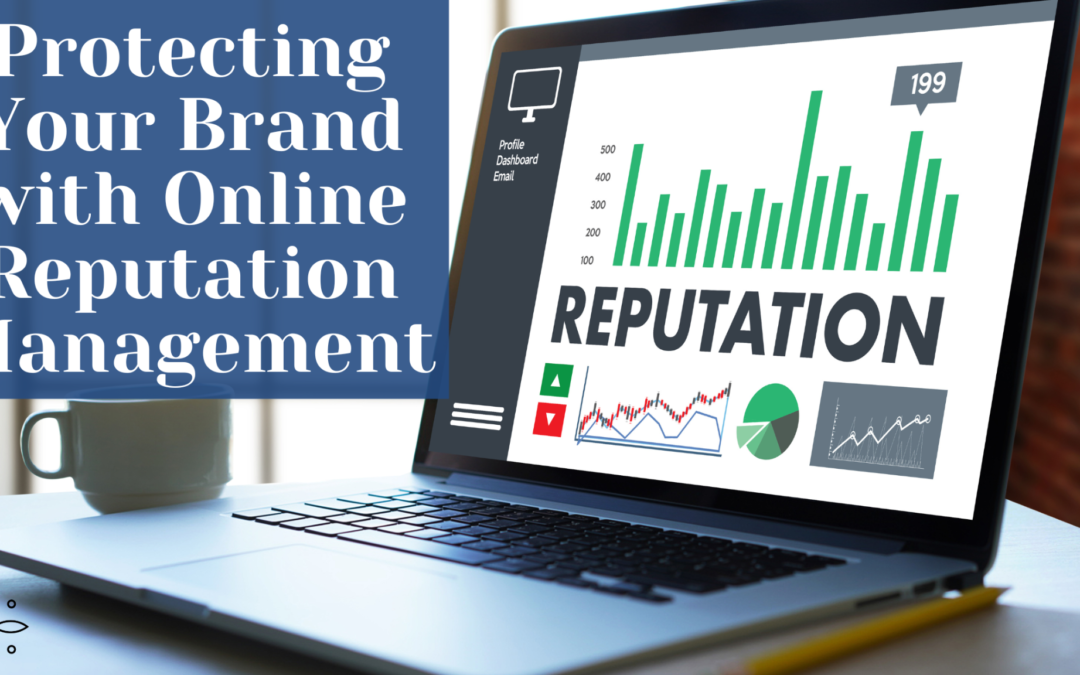- A strong online reputation builds customer trust, attracts new business, and directly impacts revenue. Negative reviews or damaging news can drive customers away, making reputation management important.
- Businesses should monitor brand mentions, respond professionally to negative reviews, encourage positive feedback, and leverage social media to shape brand perception.
- Addressing reputation issues transparently, maintaining brand consistency, and engaging in corporate social responsibility (CSR) help businesses control their narrative and build long-term credibility.
Your brand and the reputation it has are more important than ever now that plenty of businesses—and customers—have embraced digital marketing. Potential customers look online to find businesses that are worth their time and money, and businesses that are aware of such can far outshine their competitors. After all, businesses with a good brand reputation know that a single bad review, a negative news story, or even a social media post taken out of context can quickly tarnish the image they’ve worked so hard to build. But the good news? You can take control of your online reputation before it takes control of you.
This can be done through online reputation management (ORM). Let’s take a closer look at ORM and some actionable strategies that can help maintain a positive brand image, handle negative feedback, and build long-term customer trust.
Why Online Reputation Matters
The simple fact of the matter is that consumers research businesses before making purchasing decisions. When potential customers search for your business, what they find can therefore heavily influence their decision to engage with your brand. If they come across positive reviews and strong brand messaging, they are more likely to trust you. However, if they see a flood of negative reviews, complaints, or damaging news articles, they may turn to your competitors instead.
Customer trust and loyalty are directly tied to a brand’s online reputation. People want to do business with companies they trust, and a well-managed reputation creates an image of credibility and reliability. A solid reputation does not just help you retain customers; it also attracts new ones who feel more confident in their decision to engage with your products or services.
Beyond customer trust, a strong online reputation has a direct impact on revenue and business growth. Consumers are much more likely to spend money with businesses that have a positive online presence. A company with consistent five-star reviews, glowing testimonials, and a professional digital presence will outperform competitors struggling with a tarnished image.
Monitoring Your Online Presence
One of the most important steps in online reputation management is keeping track of what people are saying about your brand. Without regular monitoring, negative feedback can spread quickly before you even become aware of it.
To start, conduct regular searches of your business name on Google and other search engines. The first few pages of search results can reveal what potential customers see when they look up your company. If negative articles or reviews appear prominently, it’s important to take steps to improve the content that represents your brand.
Setting up Google Alerts is another effective way to stay informed. By receiving notifications whenever your brand is mentioned online, you can address issues in real-time and capitalize on positive press. Monitoring review sites such as Yelp, Google Reviews, and Trustpilot is also a great step to take. Social media platforms like Facebook, X (Twitter), and Instagram serve as hotspots for customer feedback, and engaging with these platforms makes sure that you’re aware of discussions surrounding your brand online.
Responding to Negative Reviews the Right Way
Negative reviews are inevitable, but how a company responds can shape public perception. Ignoring or reacting defensively to criticism can escalate the situation, making things worse. When dealing with negative reviews, remember that the key first step is to remain calm and professional. Rather than taking feedback personally, view it as an opportunity to demonstrate excellent customer service.
Acknowledge the customer’s concerns and show empathy for their frustration. Even if you believe the complaint is unfounded, offering a polite and understanding response signals that you care about customer satisfaction. Phrases like “We’re sorry you had this experience” can go a long way in defusing anger and showing good faith.
Providing a solution is equally important. If a customer had a bad experience, offer a way to make it right, whether through a refund, a discount, or a replacement product. Taking the conversation offline is also a smart move. Instead of engaging in a public back-and-forth, invite the customer to contact you directly. This approach helps resolve conflicts more effectively and prevents further public scrutiny.
Encouraging Positive Reviews

Just as negative reviews can damage a brand’s reputation, positive reviews can enhance credibility and attract new customers. Many satisfied customers are willing to leave reviews, but simply don’t think to do so unless prompted.
Encouraging happy customers to share their experiences can significantly boost your online reputation. Train your staff to ask customers for feedback at the right moments, such as after a successful service or transaction. Following up with an email that includes a direct link to your review platform makes the process even easier.
Showing appreciation for positive reviews is also important. Responding with a simple thank you or acknowledging a customer’s kind words fosters stronger relationships and encourages repeat business. Brands that actively cultivate and appreciate customer feedback tend to enjoy a stronger, more loyal customer base.
Leveraging Social Media for Brand Perception
Social media is a powerful tool for shaping how people perceive your brand. An active, engaging social media presence can strengthen your reputation, while neglecting it can leave your brand vulnerable to negative narratives.
Regularly posting updates, responding to comments, and engaging with your audience helps build a sense of community and trust. Customers appreciate businesses that are accessible and responsive. If someone raises a concern or asks a question, providing a prompt, professional response shows that your company values customer input.
Negative feedback on social media should be handled with care. Publicly addressing concerns in a respectful and solution-oriented manner demonstrates integrity. However, if a situation escalates, moving the conversation to private messages can prevent further damage.
Sharing positive customer experiences, testimonials, and success stories is another great way to strengthen your brand. Highlighting user-generated content, featuring glowing reviews, or posting about company achievements helps paint a positive picture of your business and reinforces your credibility.
Managing Brand Mentions and News Coverage
Your online reputation extends beyond customer reviews and social media interactions. News articles, blog posts, and online discussions also shape how people view your brand. Staying aware of these mentions allows you to maintain control over your brand’s image.
Tracking media mentions with tools like Google Alerts provides insight into how your brand is being discussed. If you come across false or misleading information, addressing it quickly is key. Contacting the source to request corrections or publishing a clarification on your own platforms can help control the narrative.
Engaging with your industry community also plays a part when it comes to shaping perception. Contributing to industry discussions, providing expert insights, and building relationships with media outlets can lead to positive press and thought leadership opportunities.
Crisis Management: Handling Major Reputation Issues
Even well-managed brands can face reputation crises. Whether it’s a viral complaint, a damaging news article, or an internal scandal, having a crisis management plan in place means that you can respond effectively.
The first step in crisis management is acknowledging the issue. Ignoring a crisis only fuels speculation and makes the situation worse. Addressing the problem head-on with a well-crafted response shows transparency and responsibility. If necessary, issuing a public statement outlining the steps your company is taking to address the issue can help restore trust.
Monitoring public reaction is also important during a crisis. Understanding how customers and stakeholders are responding allows you to adjust your strategy accordingly. Being honest, transparent, and proactive in resolving the issue goes a long way in rebuilding credibility.
Building a Strong Brand Identity for Long-Term Reputation Management
When customers clearly understand who you are, what you stand for, and what they can expect from your business, they are more likely to develop trust and loyalty. This is why building a strong brand identity allows your business to better control its reputation in the long run. Consistency is key—your messaging, visual identity, and customer interactions should all align with the values you want to communicate.
Having a strong mission statement and brand voice helps reinforce your reputation. Whether through website content, social media engagement, or marketing campaigns, keeping your messaging authentic and aligned with your brand values will create a reliable and trustworthy image. Additionally, brands that actively engage in corporate social responsibility (CSR) initiatives, such as charitable donations, environmental efforts, or community outreach, often enjoy a stronger reputation because consumers appreciate companies that give back.
Maintaining internal brand consistency is equally important. Employees should be aligned with your company values and trained in proper communication practices to make sure that every interaction, whether online or in person, supports a positive brand image.
The Role of SEO in Reputation Management
Search engine optimization (SEO) isn’t just about ranking high on Google—it’s also a powerful tool for online reputation management. When customers search for your brand, the results they see should be reflective of the positive aspects of your business. By optimizing your website, blogs, and social media profiles with relevant keywords, you can push down negative search results and promote content that showcases your strengths.
Publishing high-quality content, such as blog posts, case studies, and thought leadership articles, can help establish your authority in your industry while also improving your online reputation. Guest posting on reputable websites, engaging in PR efforts, and securing backlinks from authoritative sources can further enhance your credibility.
Additionally, making sure your business listings on platforms like Google My Business and Yelp are complete and regularly updated helps your potential customers find accurate and positive information about your brand with ease, which can ultimately get you even more business.
Taking Control of Your Online Reputation
Your brand’s reputation is one of its most valuable assets. By actively managing reviews, social media presence, SEO, and customer interactions, you can build a strong and positive brand image that lasts. A proactive approach ensures that your business remains credible, trustworthy, and resilient in the face of challenges.
At Rosace Enterprises, we specialize in online reputation management to help businesses protect their brands and maintain customer trust. Contact us today to learn how we can safeguard your reputation and strengthen your online presence.

